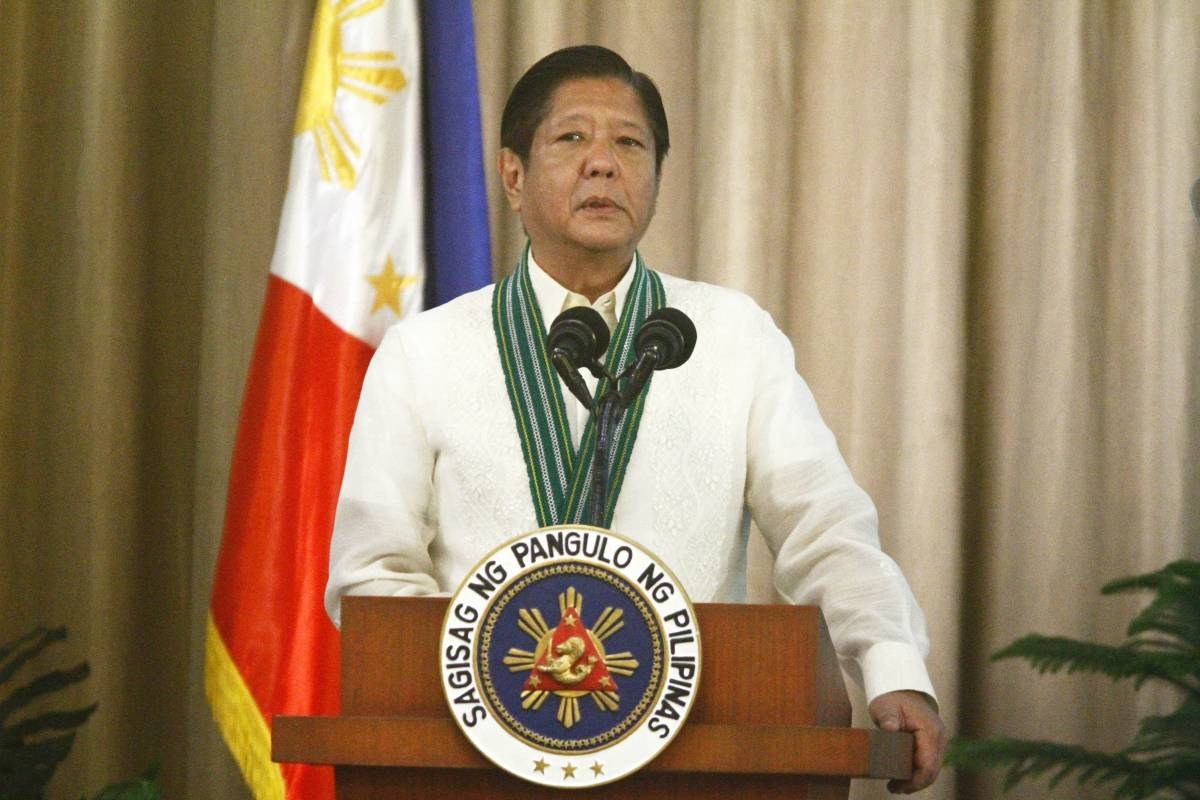Marcos trust, approval ratings plummet

(UPDATE) PRESIDENT Ferdinand Marcos Jr.'s approval and trust ratings dropped to their lowest in his three years in office, plunging to 19 percent and 14 percent, respectively, the Pahayag First Quarter Survey showed.
The survey, conducted from March 15 to 20 by PUBLiCUS Asia Inc., showed a significant shift in public sentiment, with approval and trust ratings of most national leaders declining alongside worsening perceptions of the country's state.
"The approval ratings of key government officials continue to reflect broader national sentiment, with most leaders experiencing a decline in public support," PUBLiCUS Asia said.
"However, Vice President Sara Duterte stands out as the only top official to see an improvement in her approval ratings this quarter, suggesting a deeper public divide in the ongoing political rift between President Marcos and the Duterte faction," it added.
In the survey, Marcos saw his approval rating drop from 33 percent to 19 percent, with disapproval reaching 57 percent.
Vice President Duterte, on the other hand, improved her approval rating from 37 percent to 42 percent, while her disapproval remained at 37 percent.
Senate President Francis Escudero also saw a decline in approval from 37 percent to 31 percent, with a disapproval rating of 33 percent.
Meanwhile, House Speaker Martin Romualdez experienced a decline, dropping from 20 percent to 14 percent, while Chief Justice Alexander Gesmundo also saw a slight dip in approval, from 25 percent to 20 percent.
In the same survey, PUBLiCUS Asia said trust ratings followed a similar trend to approval ratings, with most national leaders experiencing a decline — except for Vice President Duterte, whose trust ratings rose against the overall negative trend.
Marcos' trust rating fell from 23 percent to 14 percent, with 63 percent of respondents expressing distrust.
Duterte saw an increase in trust from 31 percent to 39 percent, while her distrust rating remained at 39 percent.
Escudero's trust rating dipped slightly from 26 percent to 22 percent, while Romualdez's trust rating also dropped from 13 percent to 10 percent.
Gesmundo's trust rating remained stable at 16 percent.
Among the issues affecting Marcos' performance this quarter, aside from persistent concerns over corruption (15 percent) and inflation (13 percent), his decision to assist in serving the International Criminal Court's (ICC) warrant against his predecessor, former president Rodrigo Duterte (16 percent), "appears to have significantly impacted public perception, particularly in Mindanao, where disapproval was strongest," PUBLiCUS Asia said.
Duterte, despite her improved approval ratings, was not immune to the fallout from the ICC's actions against her father, the polling firm said.
In the survey, 17 percent of respondents cited the warrant as a factor affecting their perception of her, possibly due to her perceived complicity or association.
Other key issues that negatively influenced the vice president's ratings include her threats against Marcos, first lady Liza Araneta-Marcos and Romualdez (15 percent), as well as controversies surrounding the Office of the Vice President's budget cuts (15 percent) and impeachment complaints (14 percent).
Meanwhile, PUBLiCUS Asia said that the overall performance of the Marcos administration also continues to decline, with 1 in 2 registered Filipino voters expressing disapproval.
"The downward trend is evident across all regions, with the highest disapproval recorded in Mindanao (63 percent) and Visayas (54 percent)," it said.
Among senators elected in 2022, Sen. Risa Hontiveros emerged as the most favored senator, with 20 percent of respondents supporting her, followed closely by Sen. Raffy Tulfo at 17 percent, the survey showed.
Despite having one of the highest unfavorability ratings (30 percent), Sen. Robinhood Padilla secured the third spot as a highly favored senator (12 percent), demonstrating his strong and loyal support base in Mindanao.
"The survey findings highlight a growing dissatisfaction with the country's leadership, reflecting deeper political divides and increasing concerns over governance, trust and economic stability," PUBLICUS Asia said.
The Pahayag First Quarter Survey, an independent and noncommissioned survey, was conducted using a purposive sampling composed of 1,500 respondents.
The respondents were randomly selected from a research panel of over 200,000 maintained by the Singapore office of PureSpectrum, a US-based panel marketplace with a multinational presence.
The survey divided respondents across five regions: the National Capital Region with 238 participants, North-Central Luzon with 327, South Luzon with 354, the Visayas with 287 and Mindanao with 294. The national margin of error is ±3 percent.











